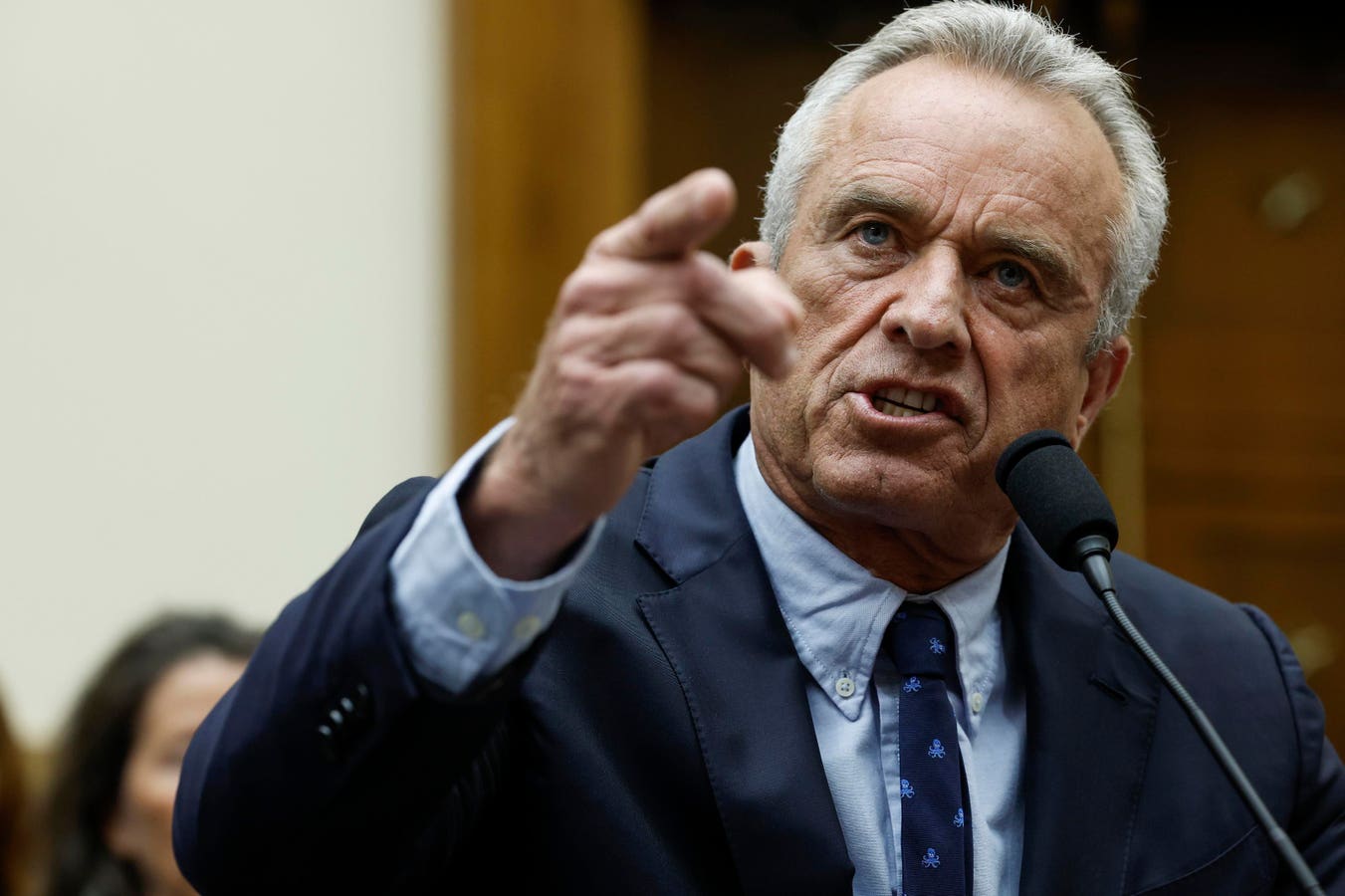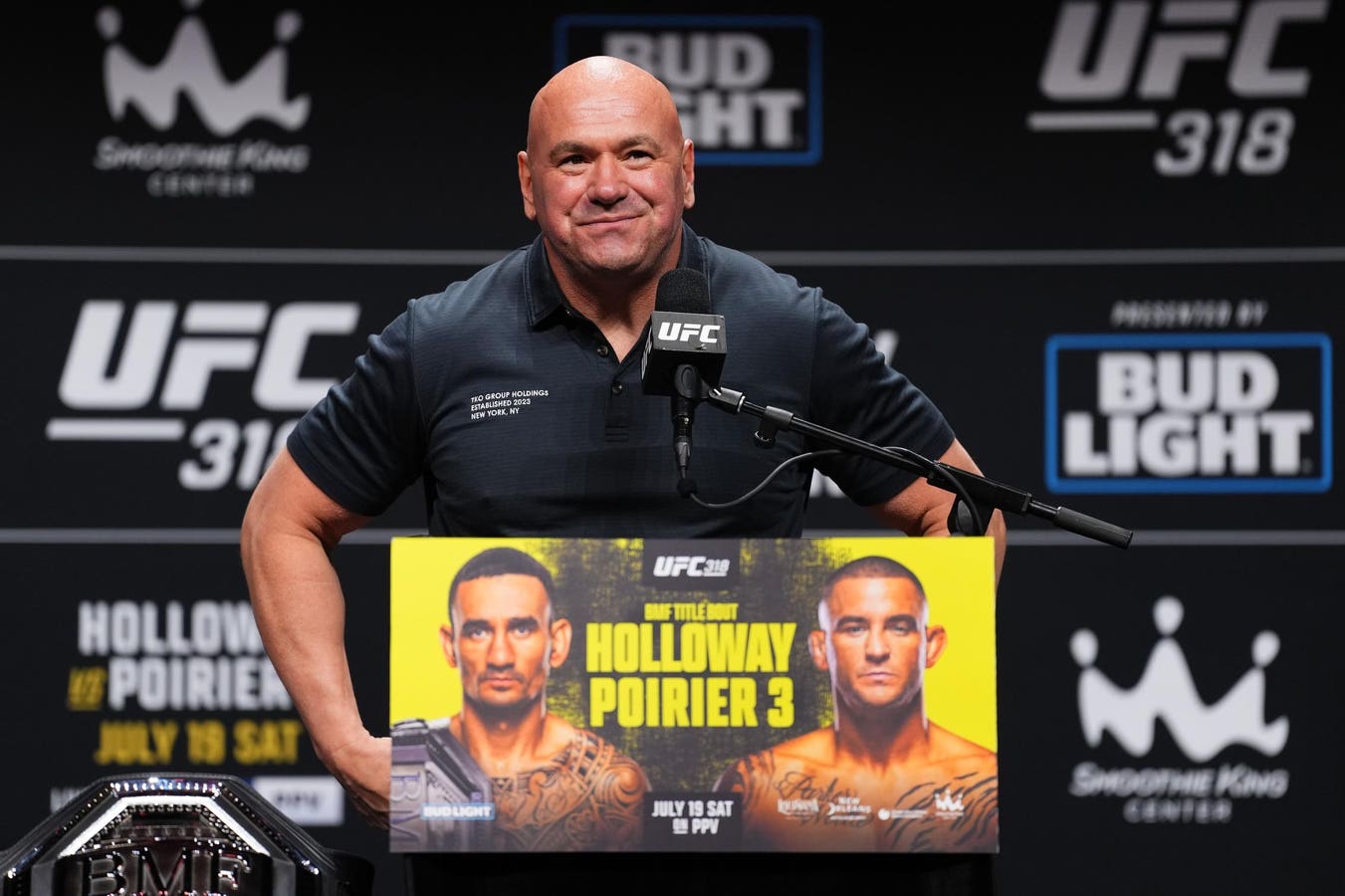WASHINGTON, DC – JULY 20: Democratic presidential candidate Robert F. Kennedy Jr. speaks during a hearing July 23, 2023 (Photo by Anna Moneymaker/Getty Images)
Getty Images
The FDA announced on Wednesday the new plan for Covid vaccine boosters. As per his pattern, Robert F. Kennedy, Jr., secretary of the Department of Health and Human Services, made the announcement on X (formerly known as Twitter), saying:
“I promised 4 things:
1. to end covid vaccine mandates.
2. to keep vaccines available to people who want them,1 especially the vulnerable.
3. to demand placebo-controlled trials from companies.
4. to end the emergency.
In a series of FDA actions today we accomplished all four goals.”
Today’s announcement follows what some suspected was a trial balloon with the Daily Beast reporting earlier this week that Dr. Aseem Malhotra, a British cardiologist who is reportedly a close associate of Kennedy, Jr. and a leading advisor of the Make America Healthy Again (MAHA) Action lobbying group promoting the MAHA agenda, suggesting that Covid vaccines would be banned “within months.”
The new indications for the Covid vaccine booster are far more restrictive than previously. Now, they will only be allowed for those 65 or older or those vulnerable due to underlying health conditions. These include chronic heart, lung, or kidney diseases, depression, obesity, diabetes or physical inactivity.
While (then) FDA leaders Vinay Prasad and Marty Makary listed pregnancy as a high-risk condition, in May, Kennedy excluded healthy pregnant women and children from receiving the boosters.
Leading professional societies have pushed back against these restrictions, including the American College of Obstetricians and Gynecologists and the American Academy of Pediatrics. The Infectious Diseases Society of America stated, “FDA has made a decision that completely contradicts the evidence base, severely undermines trust in science-driven policy and dangerously limits vaccine access, removing millions of Americans’ choice to be protected and increasing the risk of severe outcomes from COVID.
Note that vaccine recommendations are supposed to come from the Advisory Committee on Immunization Practices. The experts on the ACIP were all dismissed by Kennedy Jr and replaced with individuals who are far more vaccine-skeptical and thought to be less expert by many. They will likely support the new restrictions. It is unclear when they will meet.
Recommendations are also supposed to be signed off on by the head of the CDC, Susan Monarez, whom the Senate confirmed in July. Earlier on Wednesday, August 27, there were reports that she was ousted from the CDC. While HHS stated that she is no longer the director, Monarez’s attorneys Mark S. Zaid and Abbe Lowell said that she has neither resigned nor been fired. They said she was targeted for refusing “to rubber-stamp unscientific, reckless directives and fire dedicated health experts, she chose protecting the public over serving a political agenda.” A further complication in this high-stakes drama is that it is unclear whether she can be fired, as the Senate appoints this position.
Other senior CDC officials have also since resigned: Demetre Daskalakis, director of the National Center for Immunization and Respiratory Diseases, the CDC’s chief medical officer, Debra Houry, and Dan Jernigan, who has long overseen the CDC’s infectious disease response.
Problems with Kennedy Jr’s statement
One of the biggest is that Kennedy Jr promised he would “keep vaccines available to people who want them.”
Clearly the restrictions he imposed belie that, as neither healthy children, teens, pregnant women, nor anyone younger than 65 will be able to receive the vaccines and have them covered by insurance. If a vaccine is not recommended by the ACIP and approved by the CDC director, the insurance coverage for it is mostly optional.
For those who could afford to pay out-of-pocket, it is unclear whether a pharmacy will administer the vaccine. Some states only allow pharmacists to administer the vaccine if it has been approved for that specific indication.
Kennedy Jr also stated he will “demand placebo-controlled trials from companies.”
Elizabeth Jacobs, a retired epidemiologist and co-founder of Defend Public Health, said via e-mail, ”It is utterly unethical to conduct placebo-controlled trials of COVID-19 vaccines that have already been shown to be safe and effective. Putting people into a control group where they would receive no vaccine–and not even know it– is unconscionable and violates the basic tenets of clinical trial design.”
Which COVID-19 Boosters Are Available?
Many pharmacies do not yet have new vaccine boosters available. If you can still find the old vaccine and it has been six months since your last booster, some physicians advise getting it as soon as possible rather than waiting for the new formulation. There is a national surge in Covid now, which is likely to grow over the coming weeks, and the 2024 vaccine should still provide good coverage.
According to Kennedy Jr, the FDA has approved each of the vaccines, but with new restrictions. Moderna’s vaccine will only be for people ages 6 months or older. The Pfizer-BioNTech vaccine is restricted to those 5 or older. The Novavax vaccine, the only non-mRNA one, is limited to those older than 12.
This means that newborns, who are at especially high risk, can neither receive a vaccine nor be protected by antibodies passed down from the pregnant mother being vaccinated.
Children still die from COVID-19 or can get the complications of Multisystem Inflammatory Syndrome or long Covid. Yet they can no longer get boosters to protect them, despite the earlier promises of “shared decision-making.”
New vaccines are not yet available at many pharmacies; it is unclear when they will be or whether they will reach smaller communities before October.
Conclusion:
HHS’ divisions are saying conflicting things and no resolution is in sight. At the same time as we are seeing a surge in COVID-19, there is confusion over who will be eligible for vaccine boosters, with the new pronouncement excluding high-risk pregnant women and infants from protection. For those who are healthy, insurance is unlikely to cover the vaccines and they will be unaffordable unless Congress or the state governments step in.









